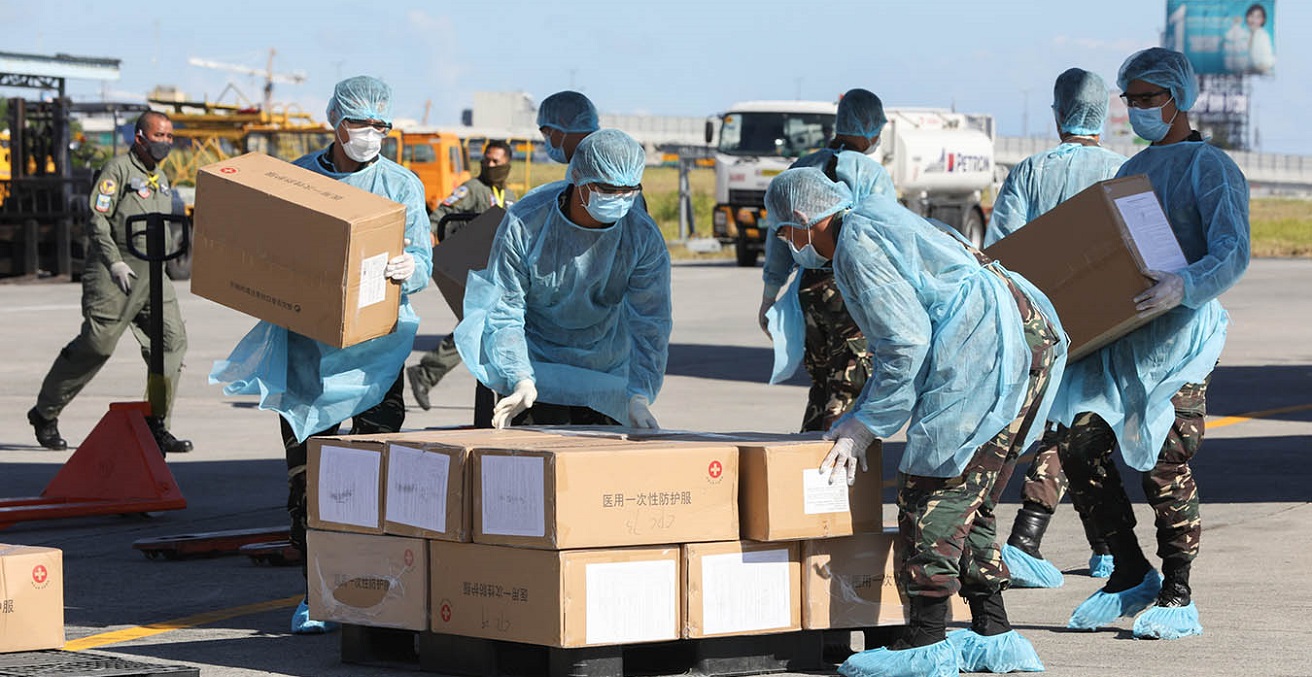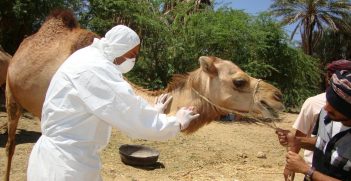China’s Facemask Diplomacy in Latin America

Despite the US’s historic position as the regional power in Latin America, it has done surprisingly little to maintain this position in the Trump era, and particularly through the pandemic. This has created a vacuum for China to jump in and assert its influence in the region.
Since COVID-19 has spread to Latin America, Beijing has delivered hundreds of thousands of facemasks, protective clothing, virus testing kits, and medical equipment to the afflicted countries, many of whom entered into mandatory quarantine following the first reported cases. These donations have all been accepted warmly by the receiving nations, with the planes carrying the supplies being met by official state delegations from the grateful governments. These donations have doubled as dialogue facilitators that extend beyond an extra supply of disposable gloves to discussions for widening export agreements with China.
Beijing’s donations of medical equipment to vulnerable Latin American countries during the coronavirus pandemic is another angle in China’s soft power strategy for the continent, as it continues to advertise itself as the preferred economic and strategic partner for a region with enduring ties to the United States. As the US’s global leadership continues to show signs to waning, China is utilising the global health crisis as the perfect opportunity to demonstrate to the Latin American nations the benefits of aligning with them.
The Chinese Communist Party’s (CCP) aim is to extend the Belt and Road Initiative, a resurrection of the ancient Silk Road, to the furthest reaches possible. Geographically, this is South America. Consequently, by providing critical materials and know-how as so-called “facemask diplomacy” during this pandemic, Beijing hopes the countries of Latin America will turn to it as a partner in a wider array of concerns than their ties currently permit.
China is currently the region’s second most important trading partner. In 2018 exports from Latin America to China reached US $122 billion, no small jump from $40 billion ten years earlier. The intensification of trade between the regions in recent years reflects the wider trend of Latin American governments perceiving China as an economic opportunity. Even before coronavirus cases appeared in Latin America, states felt the economic effect of the pandemic when goods destined for Chinese ports were stranded as the CCP quarantined the entire country. Yet, interactions between the two regions have been historically limited to trade, restricted by stark cultural differences and a general lack of knowledge of the other from both sides. It is this gap in understanding from both sides which has restricted closer ties and Beijing’s soft power cultivation in Latin America so far.
Latin American perceptions of the Asian power have been shaped by a lack of understanding and familiarity. In 2019, Brazil had the highest favourable view of China in Latin America at 51 percent, followed by Mexico with 50 percent and Argentina at 47 percent. Consequently, relations with Beijing have been inhibited by a distinct lack of sympathetic views by Latin American trade partners, who simply see China as a source of income. This is where facemask diplomacy steps in.
China’s public support for the region during the COVID-19 pandemic could have a significant effect on its image in Latin America, and more so due to the absence of US leadership during this critical period. The CCP’s perceived contribution to Latin America’s ability to weather the crisis and its subsequent recovery has a possibility of improving impressions of China, such that the CCP will come to be considered as a more attractive partner than before.
Moreover, Beijing’s facemask diplomacy is a skilful example of science and technology utilised as a diplomatic tool and source of collaboration between state actors. The win-win nature of science and technology diplomacy makes it an especially effective tool in international diplomacy and relations. China’s provision of ventilators, infrared thermometers, and other medical technology is mutually beneficial: production of these products is favourable for the Chinese economy, as it roars back to life after slowing down during the worst of the crisis, whilst Latin American nations receive assistance in replenishing critical medical supplies as they fight the virus. As a result, these donations have a good chance of being successful in improving perceptions of China, which has provided unequivocal help during a time of need.
The CCP’s contributions to overcoming the pandemic in Latin America, and its reputation in the region overall, have been further abetted by US President Trump’s handling of coronavirus at home. President Trump’s lack of action and concern is in sharp contrast to Beijing’s swift donations to Latin America following the first cases in the region. This has provided a space the CCP to assert themselves as more competent partner than the US. Likewise, just as President Trump announced he was withdrawing US funding from the World Health Organisation, Beijing declared with would be donating an additional $50 million, adding to this image that China is more competent than the Latin America’s traditional ally, whose heyday as the unipolar power is seemingly over.
The current phenomenon of Chinese facemask diplomacy is part of a wider diplomatic strategy of the CCP in Latin America as it strives to present itself as a global science and technology leader and positive force. By supplying critical equipment, Beijing is hoping that Brazil, Mexico, Argentina, Chile, Peru, and other Latin American countries will come to consider China a dependable source of technology. China hopes that in turn, this will cultivate admiration and respect, making Latin American nations more inclined to expand their relationships outside of the traditional trade sphere and follow China’s lead in the international sphere. This will be a particularly tough challenge as the CCP must simultaneously fight claims from frustrated nations around the world that the virus was created as a biological weapon in a laboratory in Wuhan, China.
Ludmilla Nunell is a former intern with the NSW Division of the Australian Institute of International Affairs.
This article is published under a Creative Commons Licence and may be republished with attribution.




